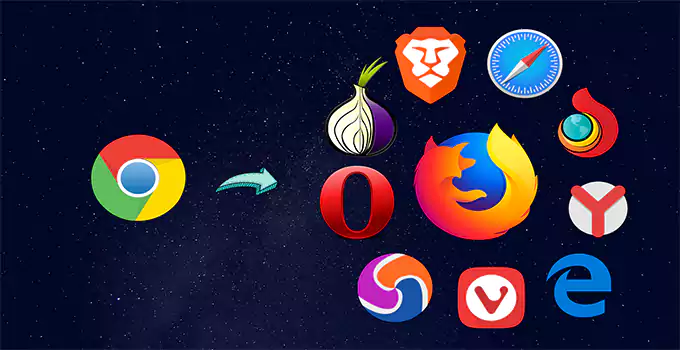Now that more chromebook browsers support Android apps, Jack Wallen took a look at the offered web browsers to see how they compare to the default Chrome internet browser. This may seem like a query that also doesn’t need to be asked.
However, now that more chromebook browsers are getting Android apps extension, it begs the question: Is there a better web browser in the Android App Store?
After all, some of these browsers do a great job on Android. “Fine” is the operative word. Obviously, anyone who uses Android will surely tell you that outsmarting Chrome on the platform is quite a challenge. There are some web browsers in this ecological community that offer features that attract certain degrees of customers.
Best Alternatives Browsers For Chromebook
In this article, you can learn about Chromebook browsers here details below;
However, are they the best original internet browser? Some come close, but Chrome on the Android platform is hard to beat.
What happens when you migrate that to Chrome OS? Is it worth it? Are those browsers that have found a degree of popularity on Android making the transition to Chrome OS? I installed a few favorite titles on my Chrome Pixel 2 to find out. Let’s just see how it stacks up.
Firefox

I enjoy Firefox on my desktop platform. On Android, it stands up relatively well against Chrome. Firefox has consistently performed well (and at a competitive speed) and has never felt unpredictable.
The only thing stopping me from using Firefox as a daily driver for my Android vehicle is that it also doesn’t sync nearly as well across other systems like Chrome.
But how does it stand up on the Chrome OS system?
Not effectively.
Basically, if your device does not have touch screen browsers for Chromebook, forget about it. Firefox on Chrome OS (Fig. A) only deals with the touch screen. Your trackpad is not working with this web browser.
Firefox on Chrome OS.
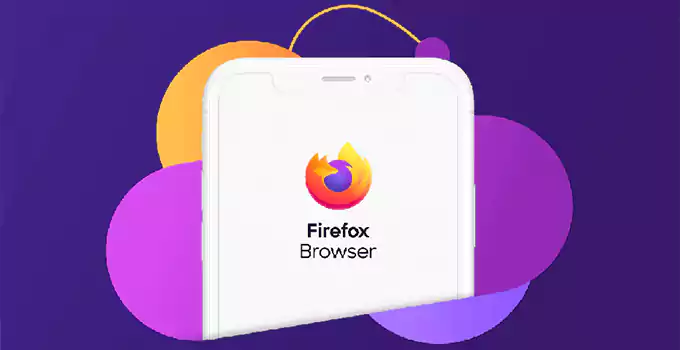
The next blow against Fire-fox on Chrome OS is that you only have two dimensions: small as well as fully usable. You are given a lot of time using which web browser you are best to use, but often you want to crack a window on
the left or right side of the screen as well as work with a single app on one side of your screen and also an extra item on the other. Not so with Firefox. So the combination of just the touch screen and also the failure to easily resize the app leaves Firefox for me.
Opera Mini.
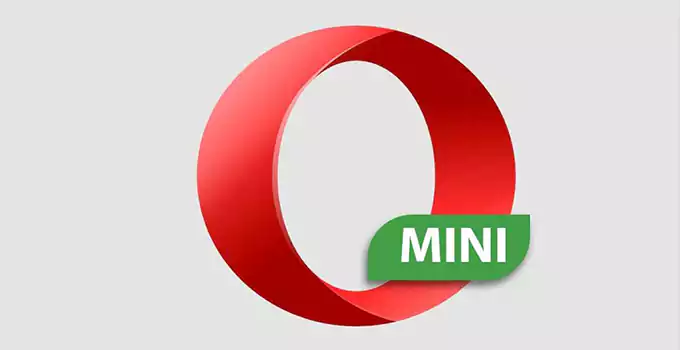
I’ve always thought of Opera Mini (Figure B) to be one of the most effective alternatives to the original Chrome browser on Android. It builds with Chromebook browsers at lightning speed, offers plenty of plugins and the plug-in dream has come true. With the built-in ad blocker, you have everything you need to make this the default internet browser that will serve you incredibly well.
Opera Mini on Chrome OS.
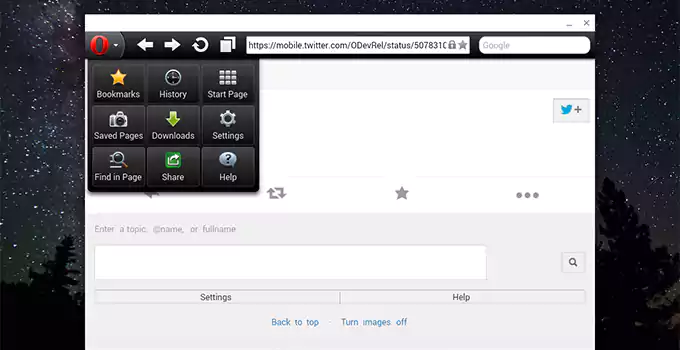
However, are you transitioning from Android to Chromebook Chrome OS browsers? In a word, in the first place. Opera Mini does a great job of rendering like a pro, handles your trackpad, and really feels as stable as built into Chrome. There are only two caveats with Opera Mini. The first (similar to Firefox) is that you cannot resize the main window openly.
The second is that it does not provide all the bells and whistles of the desktop version. However, you can select Mini’s big sister, the Opera browser, and also get a couple of extra features (like app design selector as well as sync). However, also using the full diff, you still don’t get the sidebars and also other extras discovered in the desktop version.
Opera Mini’s quick-end idea is that it does functionality in Chrome on Chrome OS, but it doesn’t ask you for the long-running button.
Dolphin Browser.
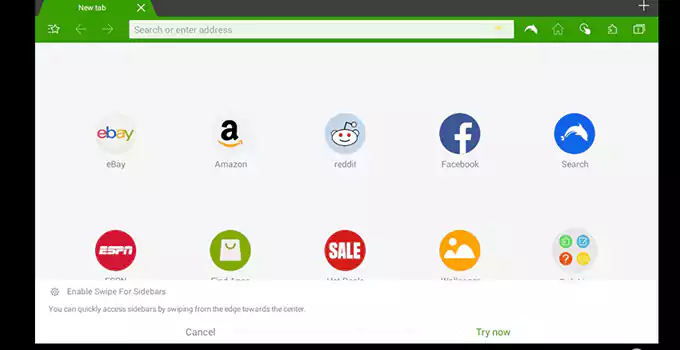
Search practically any “best” checklist of alternative web browsers for Android, and you’ll find Dolphin Browser near the top. With a great worker. Dolphin provides themes, flashing support, ad blocking, motion support, help, and much more.
On Chrome OS, Dolphin works just fine. Running the browser on Chrome OS does not remove any of the functions that made the internet browser popular and the app run flawlessly. Dolphin delivers exactly what you’d expect (Figure C) and does it right away.
Dolphin Browser operating on Chrome OS.
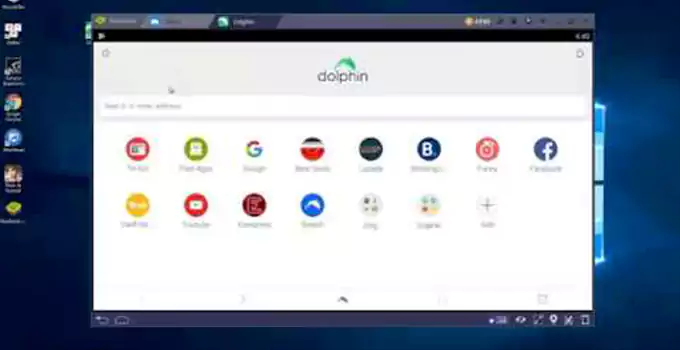
This browser also uses the ability to sync across gadgets. This feature is a bit surprising (it’s located under Tab Push); Once Dolphin is attached to a Google or Dolphin account, tabs, bookmarks, and more can be synced across systems.
Like the previous two entries, the only caveat to Dolphin is its inability to resize it. But given that this is the only concern I’ve had with Dolphin on chromebook OS browsers, I feel relatively positive in declaring that on a mobile web browser this is a better option than the default Chrome.
Ghostery Browser.
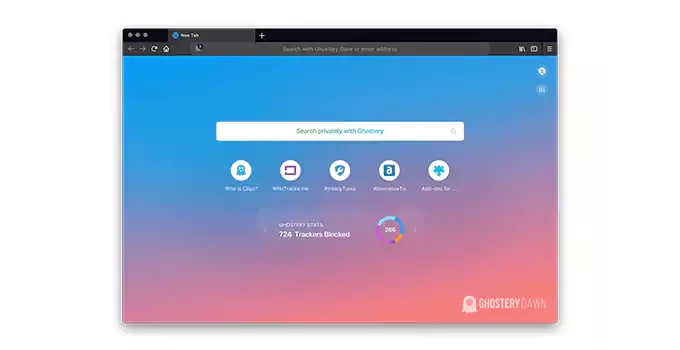
If you are searching for one of the best internet browsers for privacy, then you may be familiar with Ghostery’s Firefox browser as well as Chrome plugins. However, did you realize that the developers have integrated these functions into a full internet browser? Ghostery might be the web browser you want, if you’re looking for great anonymity while searching.
This particular browser goes out of its way to block third parties’ access to your data using trackers. Ghostery has a huge tracking database (with over 2,200 trackers and 4,500 scripts) and also allows you to instantly clear all cookies along with many other saved information.
The biggest caveat to using Ghostery is that it is a relatively regular web browser (Fig. D). You won’t find much in the way of functionality and also, thanks to its tracker obstruction, Ghostery slows down the page load significantly. So, if you are a fan of price and functionality, then Ghostery is not the right internet browser for you. On the other hand, if you love your privacy, you will surely succeed with this internet browser on Chromebook OS browsers.
What concerning the remainder?
There are other web browsers that can be found in the Android Play Store on Chrome OS. However, the rest either don’t work properly on Chrome OS or don’t offer anything at all that definitely requires a loading issue. The four internet browsers mentioned work well and use features that you may find attractive (or perhaps even wanted).
Obviously, in order to install any of the above web browsers, you must have supported browsers for chromebook as well as have the Android Play Store enabled. When these demands are met, you can check these internet browsers on your own to see if they meet the requirements for mobile browsing.
